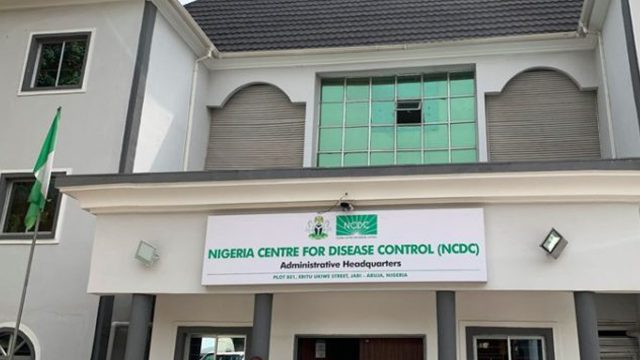
By Uche Amunike
The Nigerian Centre for Disease Control, (NCDC), which has been monitoring the spread of the Diphtheria disease as it spreads like wildfire in certain states in the country, has confirmed a recorded number of 123 cases of affected people and 38 deaths in all of four states in the federation.
Speaking, Monday, during the Ministerial bi-weekly meeting on the update of COVID-19 response and development in Nigeria’s health sector, the Head of Special Projects and Partnership Unit at NCDC, Dr Priscilla Ibekwe, who represented the NCDC DG, Dr Ifedayo Adetifa, stated that she was collaborating with the state ministries of health to enhance surveillance and response to the outbreak.
She stressed that as of January 22, 2023, 100 cases and 32 deaths had been officially recorded in Kano, 5 cases and 3 deaths in Lagos, 17 cases and 3 deaths in Yobe, while Osun state recorded one case and no death.
She explained that Diphtheria was a serious bacterial infection that is caused by a bacteria known as Corynebacterium Species, which affects the nose, throat and even skin of its victim.
She further added that it spreads fast between people when they have direct contact with infected people’s droplets from coughing, sneezing and contact with contaminated clothing and objects .
Her words: ‘People most at risk include children and adults who have not received any dose of the pentavalent vaccine.’
‘People who live in areas with poor sanitation, people who live in a crowded environment, and healthcare workers exposed to suspected or confirmed cases of the disease.’
‘The onset of signs of the disease usually starts after two to 10 days of exposure to the bacteria’, she stated.
The symptoms, she said, include conjunctivitis, neck swelling, runny nose, sore throat fever and cough. In chronic cases, however, a thick gray or white patch is seen on the tonsils and at the back of the throat associated with difficulty in breathing, while the complications from the disease include damage to the heart muscle, kidney failure, airway blockage and nerve damage. She however reiterated that respiratory Diphthteria could lead to death in some victims.
The workshop, Ibekwe noted, was for laboratory scientists working In National Reference Laboratories and its laboratory network and was organized before any cases were reported as a way of being prepared.
She noted that the agency had reached out to all state hospitals and community health services to institute prompt public health measures for early detection and response to Diphtheria at the state level and advised parents to ensure that their children are given the 3 doses of the pentavalent vaccine against the disease. She also urged health workers to keep to a high level of suspicion for the disease, even as she called on individuals with symptoms of the disease to isolate themselves and notify the DSNO, LGA or NCDC through their toll-free line (6232).
Ibekwe confirmed that the federal government deployed a response team already, knowing that there would be more cases reported. Hear her: ‘Given the sub-optimal coverage for the third dose of diphtheria containing pentavalent vaccine (54 per cent – 2021 MICS and NICS) in the country, we expect more cases from more states. In view of this, we have deployed the Rapid Response Team members to support state response and media engagements with the DG’.







